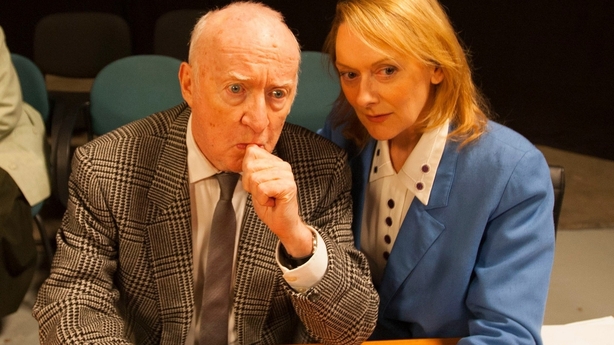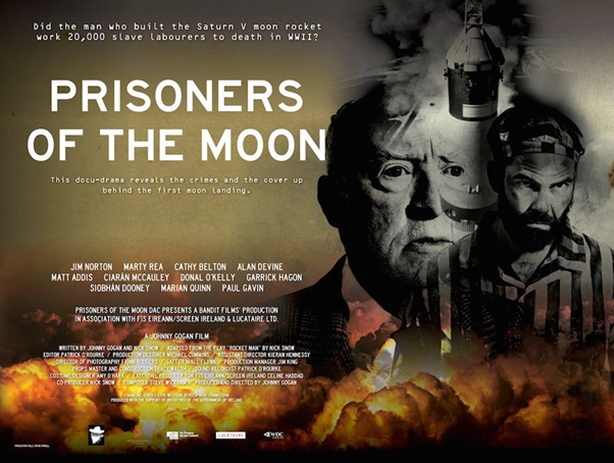Filmmaker Johnny Gogan writes for Culture about his new documentary, Prisoners Of The Moon, which uncovers the dark story behind the success of the first moon landing, 50 years ago...
I'm old enough to remember where I was when the first man landed on the Moon. There was no TV in the 14-foot caravan in Mullingar's Lough Ennell in which I and my siblings spent much of July 1969, while back in Dublin our mother was tending her mother in her final journey.
Still, the excitement was infectious as the first manned Moon landing was also the first global television event, satellite transmission a feat of space travel. Yet, there was so much about these events that the 500 million people watching globally did not know. Back in Mission Control in Houston, as Neil Armstrong made that first giant leap and applause broke out amongst a relieved project team, Wernher von Braun and colleagues Dannenberg, Stuhlinger and Operations Director Arthur Rudolph exchanged quiet glances. In their minds, this was not an American achievement, but a German achievement.
And why not? Most of their American colleagues had only been working on this project since John F. Kennedy's 1961 instruction to Congress: the Germans had been working on space travel for forty years. In October 1942 they had successfully launched and guided, under von Braun's leadership and Rudolph's Production Management, the Vengeance 2 missile into space, providing the first images of the stratosphere and of Earth's curvature.

It was this achievement that made them so sought-after in the closing months of the war. While one wing of the U.S. Army liberated the hell-hole of a subterranean factory complex in North Central Germany where up to 500 V2 missiles a month were being constructed by slave labour, another wing were hunting down the engineers in order to deploy their expertise for America's post-war plans. Von Braun knew how valuable they were and with SS connivance had engineered their capture by the Americans.
There was so much about these events that the 500 million people watching globally did not know...
When I came to this story, much of this was already in the public domain: the capturing of the V2 missile technology by the Allies - not just the Americans - the cover-up by US Military Intelligence of the Nazi pedigree of the 120 engineers who were quickly put to work on ICBMs in the US using the V2 technology; von Braun's leadership of his team in the successful 1958 launch of the Explorer Satellite and their subsequent transfer to the civilian Space programme under NASA.
However, their war record had been air-brushed. The story went that they weren’t really Nazis; they were only doing their job, their civility testified to by their contribution to the culture of Huntsville, Alabama where they were based. Most of all, they had provided the West with the necessary to fight the Soviets in the Cold War.

As a result, none of these characters had ever darkened the door of a court of law, except that is, for Arthur Rudolph, the second most important figure in the Moon Landing mission. English journalist Nick Snow, who I teamed up with to make this film, had learned of Rudolph's case while reporting on the Ariane Rocket launches in the 1990s. He researched some two thousand pages of court documentation dealing with Rudolph's 1990 Immigration Tribunal hearing in Toronto after Rudolph was stopped by Canada Border Agents. Using verbatim testimony Nick had fashioned this into a radio play, which became the spine of our film.
The most insightful interpretation of these events should be left to Chief U.S. War Crimes Prosecutor Eli Rosenbaum who we interviewed in Washington for the film: "This is an important case. Anyone who thinks this is just buried in the past, never to be repeated, is just not paying attention."
Prisoners Of The Moon is in Irish cinemas now, and is touring nationwide - find out more here.

